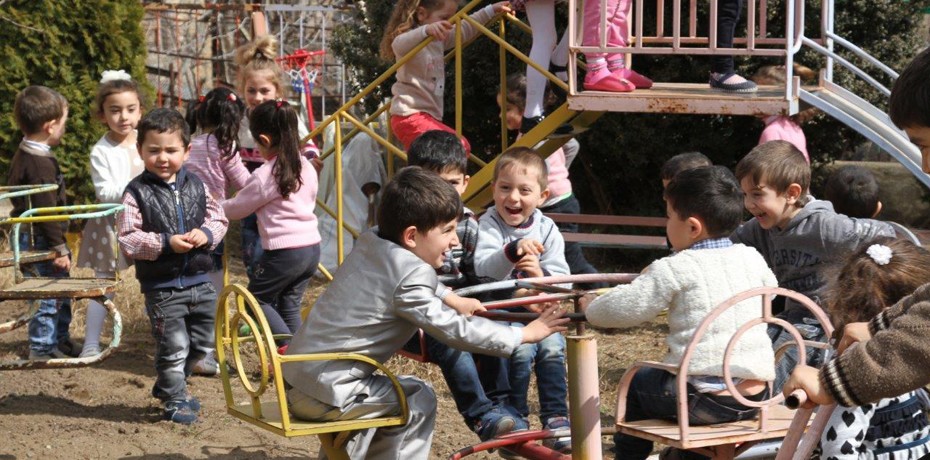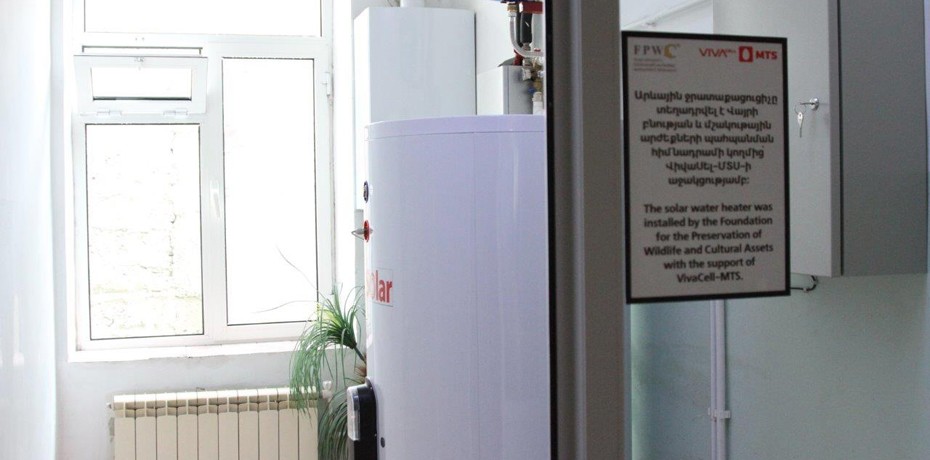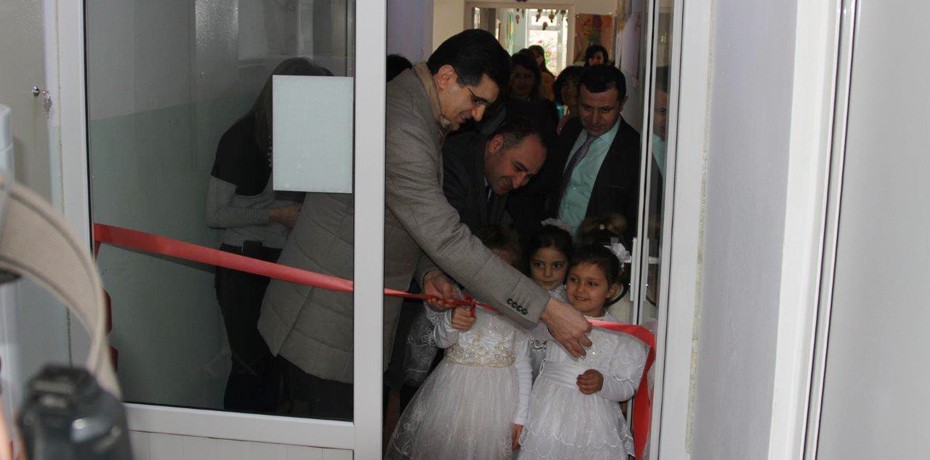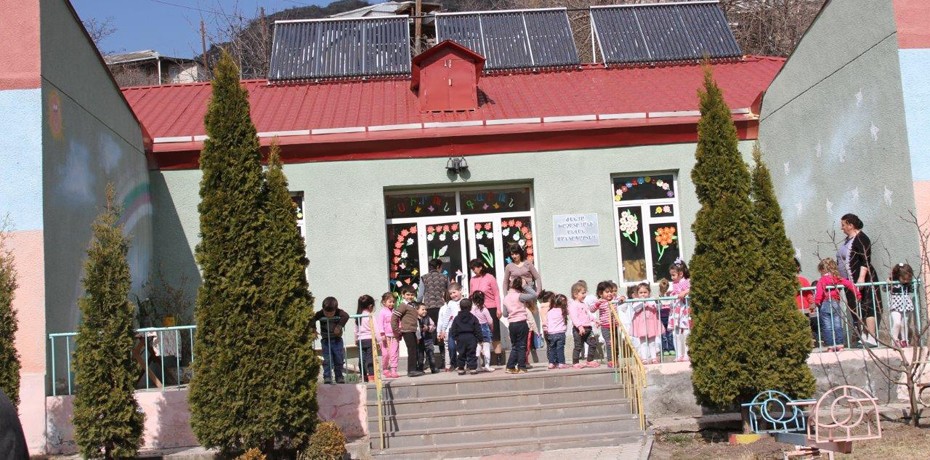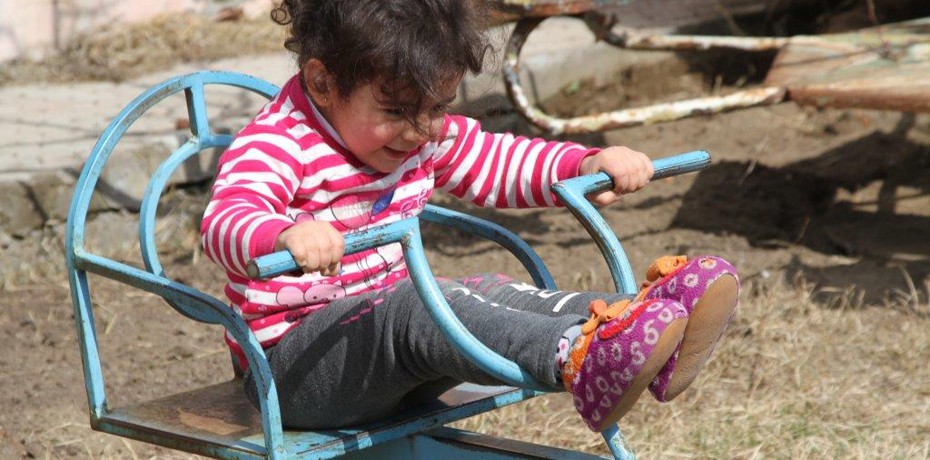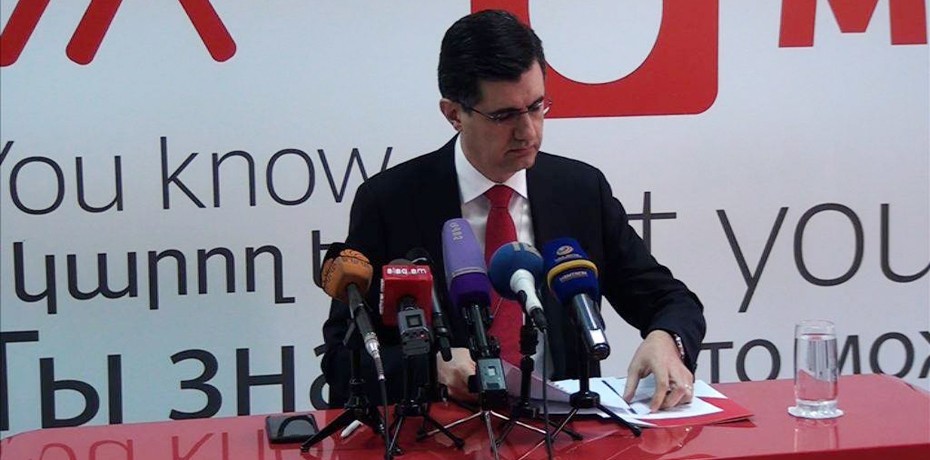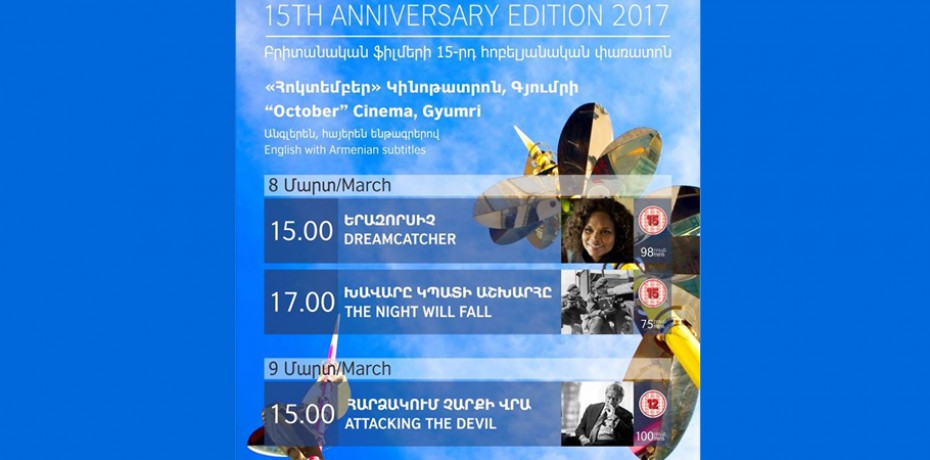13:16 | 10.03.17 | News | 15606
VivaCell-MTS supports launch of a solar water heater in borderland Mosesgegh
The borderland villages and communities of Armenia are always in the limelight of the Foundation for the Preservation of Wildlife and Cultural Assets and VivaCell-MTS.
With the joint efforts of the cooperating organizations, "The Alternative Energy" project allows to significantly reduce the utility costs of the communities and the residents, and to activate the community life in the village.
The community of Mosesgegh is a beneficiary of the project: this is the first time the solar water heater system is launched in kindergarten of the borderland community.
VivaCell-MTS has allocated funds for the reconstruction of the community's almost destroyed kindergarten back in 2008. In order to reduce the expenses of the community, as a result of the use of the new technologies the heating system of the building has been equipped with a 33kW and 400 liter heat exchanger tank, and a solar water heater system.
The launching of the water supply system was attended by the General Manager of VivaCell-MTS Ralph Yirikian, the Founder of FPWC Ruben Khachatryan, Mosesgegh community head Ludvig Aperyan, and the residents of the community.
“Exploitation of solar water heaters is beneficial in more than one aspect. Firstly, it is a solution applicable in regions with various climate and natural conditions. Further, water heaters help communities reduce expenses. It is a win-win option for nature, borderland community and ordinary citizens. I have to underline that our projects are based on corporate social responsibility: it is a strategy we have adopted as early as 11 years ago being sure that within the course of time other organizations will pick this approach as a role model. We see today that this strategy has become close to many, and we are really happy for it,” said VivaCell-MTS General Manager Ralph Yirikian.
Mosesgegh was founded at the end of the 18th century (in 1780). The first residents came here from Artsakh. As the legend has it, the name of the village derives from name of Movses, a villager once known for exceptional bravery.
Nowadays, Mosesgegh has about 2000 residents, mostly engaged in animal husbandry, viticulture and the cultivation of fruits and vegetables.
Mosesgegh has a secondary school, a cultural center, a library and a kindergarten.
The launching of the system will provide year round supply of hot water, exclusively through the solar water heater. The system will reduce the expenses of the community's budget spent for the kindergarten heating almost for 40%.

17:29 | 24.09.25 | Articles
Jacopo Losso on Cross-Border Investments and Why Armenia Attracts Angels

